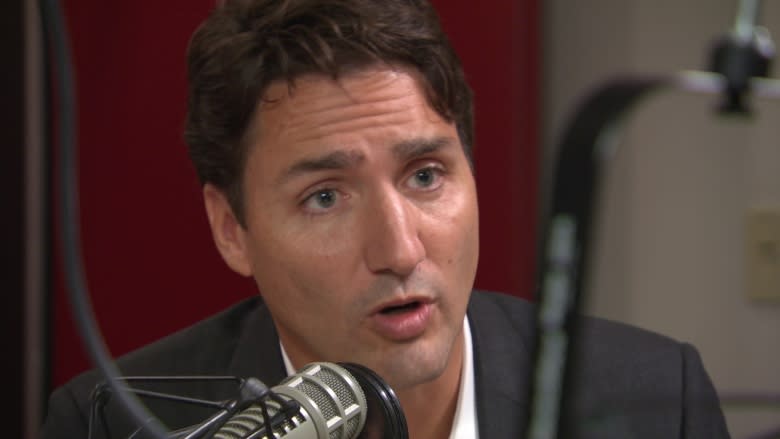Sputtering economy will be focus of federal election campaign
The province's faltering economy is likely to dominate the political discussion in the early weeks of the federal election in New Brunswick, according to two analysts.
Conservative Leader Stephen Harper has ended the weeks of speculation and has asked Gov. Gen. David Johnston to dissolve Parliament and officially start the federal election campaign.
New Brunswick's unemployment rate has remained stubbornly high and economists continue to haggle over whether Canada has slipped into recession.
These factors will mean political leaders and candidates will have no choice but to articulate a clear path to economic recovery when they starting knocking on doors ahead of the Oct. 18 vote.
Jamie Gillies, an assistant professor in communications and public policy at St. Thomas University, said he expects political candidates to be hounded by questions on job creation.
"At the start of the campaign, it has to be the economy and then we'll see how the potential 10-week election campaign goes because I'm sure there is going to be a series of dynamic changes throughout [the campaign] that will affect this region someway," he said.
J.P. Lewis, a political scientist at the University of New Brunswick in Saint John, also said he believes candidates will not be able to escape questions about the economy when they hit the hustings.
"Issue-wise, it is going to continue to be the economy for sure, we are stuck in that narrative," Lewis said.
"There will be other narratives that pick up nationally, childcare or terrorism, but I think the economy will be the one that rings loudest in New Brunswick."
Assigning economic blame
As a part of laying out their campaign strategy, candidates will be busy framing the issue of the economy in the way the best suits them.
The Liberal candidates will need to convince voters that Harper's Conservatives are to blame for the province's stagnant job creation record.
The Conservatives, conversely, will need to assure voters that Harper's plan for the economy is working but it is Premier Brian Gallant's Liberal government that is at fault for the lack of jobs.
Just how the parties map out their economic plans as the start of the campaign, Gillies said could significantly influence the eventual outcome of the election.
"If we are veering toward a recession as a result of the slowdown in oil production and the price of oil tanking the Canadian economy, it could prove to be a huge Achilles heel to the Conservatives," Gillies said.
The sensitivity toward the economy was in full display in July when Liberal Leader Justin Trudeau refused to lend his complete support for the Energy East pipeline.
The pipeline proposal has widespread political approval in New Brunswick and Trudeau's comments were seized on promptly by Tories in the province.
Wayne Long, the Liberal candidate in Saint John, came forward to say that he would fight for the pipeline if he was elected.
When NDP Leader Tom Mulcair stopped in Edmundston and Campbellton on Thursday and Friday, he placed the blame for the region's high unemployment rate squarely at the feet of the prime minister.
"He's already lost 400,000 well-paid manufacturing jobs," said Mulcair on Friday in Campbellton.
"We need a government that is willing to become a champion for well-paid manufacturing jobs. I will be that champion."
The Conservatives held eight of New Brunswick's 10 federal seats when Parliament was dissolved, compared to one Liberal and one New Democrat.
Long-time NDP MP Yvon Godin is not running in Acadie-Bathurst and Conservative MP Mike Allen is not re-offering in Tobique-Mactaquac.



